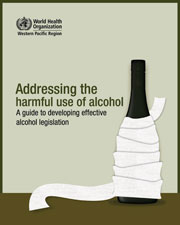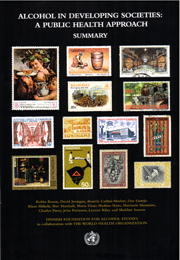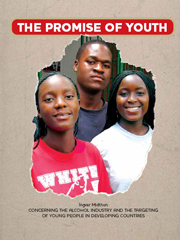
Alcohol policy discussions in Malawi
“As a developing country Malawi cannot afford to divert our scarce resources from basic needs such as education and food to alcohol consumption”.
With these words the Malawian Minister of Home Affairs, Hon Earnest F. Malenga, opened a conference on alcohol as an obstacle to development in November. The conference in Lilongwe, the capital of Malawi, was attended by more than 100 representatives from Malawian NGOs and government institutions, as well as from NGOs from other African countries, India, Sri Lanka and Norway. The purpose of the event was to discuss how alcohol problems are related to other key development issues and to define effective interventions against such problems.
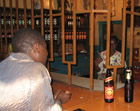
Furthermore, Mr. Malenga pointed to the fact that Malawi is one of the countries faced with serious drug production, abuse and trafficking in the SADC region. - There are three main drugs of abuse in Malawi, namely alcohol, Cannabis Sativa (locally known as Chamba) and tobacco.
The Minister underlined that malawians are keenly aware of the effects of alcohol on individuals, families and society. For example families break up, people loose employment, students are expelled from school, diseases such as STIs and HIV/AIDS are contracted, and disability and death occur due to drink and driving accidents. The socio-economic effects of alcohol on the Malawian society are monstrous, said the Minister.
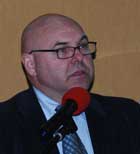
He went on to say that FORUT is one of very few international development organisations that is concerned about alcohol and drugs in the development work. - Our aim is to build networks of national and international NGOs where ideas, experiences, knowledge and prevention strategies can be exposed and further developed. FORUT’s new Malawi programme aims at linking the ADD issue to other development issues, as the prevention of gender-based violence, poverty and HIV/AIDS. Our contribution is to bring in knowledge, competence, experiences, methodology and strategies in order to develop local strategies and action plans.
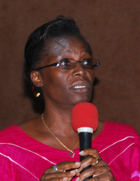
Dr Zawaira concluded her presentation by promising that the World Health Organizations stands ready to give the required assistance to its Member States, including Malawi and other countries in the region.
Professor Thomas F. Babor of University of Connecticut School of Medicine presented to the audience by a pre-recorded video-presentation. The presentation, on the Effective and Evidence-based Interventions to Reduce Alcohol-related Harm is still available here.
The major part of the Lilongwe conference was organized as parallel thematic sessions, focusing on more specific aspects of alcohol as a development issue:
- New evidence: Alcohol as risk factor for HIV/AIDS
- International experiences: Prevention of substance abuse among children at risk
- Alcohol policy: Best practices and how to use them in Malawi
- How to deal with alcohol as a risk factor for gender-based violence
These sessions provided opportunities for exchange of experiences between Malawian NGO and government representatives and resource persons from FORUTs partner organizations in Asia. Discussions also focused on how the alcohol issue can be integrated into existing programs and activities on major development areas in Malawi, like the promotion of gender equity and the prevention of HIV/AIDS.
See presentation from the conference:
Professor Thomas F. Babor: Effective and Evidence-based Interventions to Reduce Alcohol-related Harm
![]()
![]()
Developed with CustomPublish CMS by Nettinfo AS

